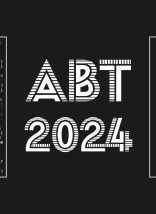Good “pay per click” management is difficult to find, and even more difficult to understand. So when should you make the investment into this new and potentially extremely profitable service?
What is “pay per click”?
“Pay per click” is an advertising service where you only pay for your advertisement if a customer clicks on the ad. The innovative “pay per click” service allows you to compete for customers in your target market on the Web. How much you are willing to put into your “pay per click” budget directly impacts how much your advertisements relate to your prospective customers. But, remember – while pay-per click advertisements may increase the number of customers clicking into your website, it does not guarantee sales.
When should I purchase “pay per click” services from a management team?
During my experiences as a part of Atlantic BT’s internet marketing team, I have identified three key questions to consider when considering pay per click as a marketing channel: 1) Are you investing for the long term? 2) Are the website designers flexible?, and 3) Are you familiar with basic pay per click terminology?
I will discuss the importance of each question below.
Question 1: Are you in it for the long haul?
Many companies think that online or web-based advertisements produce instantaneous results. (After all, the customers are just clicking a link!). While this may happen sometimes, in most pay per click advertising campaigns, this just doesn’t happen.
Even great “pay per click” management companies will only create truly effective advertisements after they figure out the following details about your firm:
- What are the goals with this businesses website?
- Are we tracking website user behavior with Web Analytics software?
- How can we track return on investment with their current website?
- What different products and services exist within the business?
- What keywords are important to these products and/or services?
- What advertisements sell these products and/or services best?
- What landing pages are important to these products and/or services?
- How much should we be spending per sale?
These questions cannot be answered instantaneously. The management team must adjust their actions according to the answers they discover through trial-and-error. In order to get things moving quickly, I recommend increasing your “pay per click” budget during the initial few months of working with a “pay per click” management team. With a higher pay per click budget, you are giving the pay per click company the ability to pull in larger sample sizes of data. This allows the team to use statistics and data analytical tools to make better choices regarding the type of advertisements, effective keywords, landing pages and products.
This initial process of collecting data may not generate a profit for you for a few months, but will help create more effective advertisements in the long term. So, if you’re in it for the long term – pay per click advertising may be more up your alley. But if you want short term results (say, for a promotion of a sale good), some other type of advertising might be more effective.
Question 2: Are the people in charge of the website open-minded, quick-moving team players?
When you invest into pay per click advertising, it is very likely that changes to the website will need to be made.
There are two types of relationships at work here: in the first type, you have a business that works with two separate companies for web development and internet marketing, and in the second type, you have a business that works with one company for both web development and internet marketing.
First type of relationship: Business works with both a Web Development company and pay per click company
In this type of relationship, I have found that marketing time and budget is wasted due to lost-in-translation, stubbornness and slow development changes. For this type of relationship, you the business owner needs to establish trust with both companies as well as establish trust between the two companies.
The three items that I commonly see happen in this type of relationship:
Lost-in-translation
If you plan on working with two distinct companies for these two services, allow both parties to discuss strategy with one another. You do not want to find yourself in the position of playing, “he said” – “she said” about topics which you may not be comfortable re-explaining. Think back to grade school with the “the telephone game”. Instead of whispering one sentence, you are whispering an online marketing strategy. Mistakes will be made, and budgets will be wasted.
Stubbornness
A web development company will have made suggestions and recommendations during the website creation phase which they may not wish to retract. Sometimes a web development company will try to refute a change, as a good web development company will be proud of what they have already done for your website. This hesitancy to implement a change can lead to wasted marketing time and therefore wasted money. You need to review the evidence that your internet marketing company has provided and weigh that against the cost / time frame for the web development change. You are only collecting cost / time frame from the web development company and the strategy / research from the internet marketing company. It is generally a bad idea to let either party dabble with the other’s expertise.
Slow development
It is understandable that a web development company cannot work exclusively with your business. So, in most cases the developers at the company have other business websites to work on and not just yours. However, if you find yourself waiting a month or two for changes that the internet marketing company recommended do realize that this directly affects the strategy that the internet marketing company has set out for you.
Second type of relationship: Business works with one all-in-one company such as AtlanticBT
Here at Atlantic BT, we have the luxury of having web development, internet marketing (pay per click management as well), web hosting and web design all under one roof so our clients need only to speak with one company about the different services. In this case, “lost in translation”, stubbornness and slow development are less of an issue. These types of relationships generally work better, because things are done quicker due to the departments trusting one another and knowing their capabilities.
For this type of relationship, it is important that you, the business owner, trust this business’s strategy as well as its web development capabilities and design work.
Question 3: Are you familiar with basic pay per click terms?
The last thing you want is to be nodding your head at something you do not understand. Now, you should be in the position to freely ask your pay per click management company questions. However, most of these relationships are hourly – make sure that you don’t a question which you can answer yourself with a simple Google search.
Here is a crash course on some important acronyms and pay per click lingo: (my personal definitions)
- Ad Campaign- An overarching category that contains multiple ad groups.
- Ad Group- Contains multiple keywords and advertisements within a group. Advertisements will only display for keyword that are found within the Ad group.
- Keyword- The search query or phrase that the marketing team anticipates your potential customers will type.
- Text Ad- Multiple text ads can be placed at the Ad Group level and displays when keywords within the Ad Group are typed.
- Impressions-The number of times the search network has displayed your advertisement. This metric can be seen at the keyword, advertisement, ad group, ad campaign and account level.
- Clicks- The number of times consumers have clicked on your advertisement. This metric can be seen at the keyword, advertisement, ad group, ad campaign and account level.
- CTR- Click-through-rate is a percentage derived from clicks on a specific advertisement divided by the amount of impressions which the advertisement had. This metric can be seen at the keyword, advertisement, ad group, ad campaign and account levels.
- CPC- Cost-per-click is the rate which is paid for a click on a specific keyword.
- CPM- Cost-per-thousand-impressions is a less common payment model. It is the rate which is paid for every thousand impressions for a specific keyword.
- Avg. CPC- The average cost-per-click across an arbitrary time period. This metric can be seen at the keyword, advertisement, ad group, ad campaign and account level.
- Avg. CPM- The average cost-per-impression across an arbitrary time period. This metric can be seen at the keyword, advertisement, ad group, ad campaign and account level.
- Conversion Rate- A metric that is tracked only if your pay per click management company implements conversion code on a page that is considered a successful transaction. A successful transaction can be defined as a newsletter sign up, blog sign up, purchase on the site, etc. This percentage is derived from number of conversions divided by number of clicks. This metric can be seen at the keyword, advertisement, ad group, ad campaign and account levels.
- Cost per Conversion- The rate which you are paying for each conversion. This dollar value is determined by cost divided by number of conversions. This metric can be seen at the keyword, advertisement, ad group, ad campaign and account levels.
Now that you have a taste of what you are getting into, do you have any questions for us? If you do, feel free to post a comment. If it is a more sensitive topic, feel free to contact us privately.









